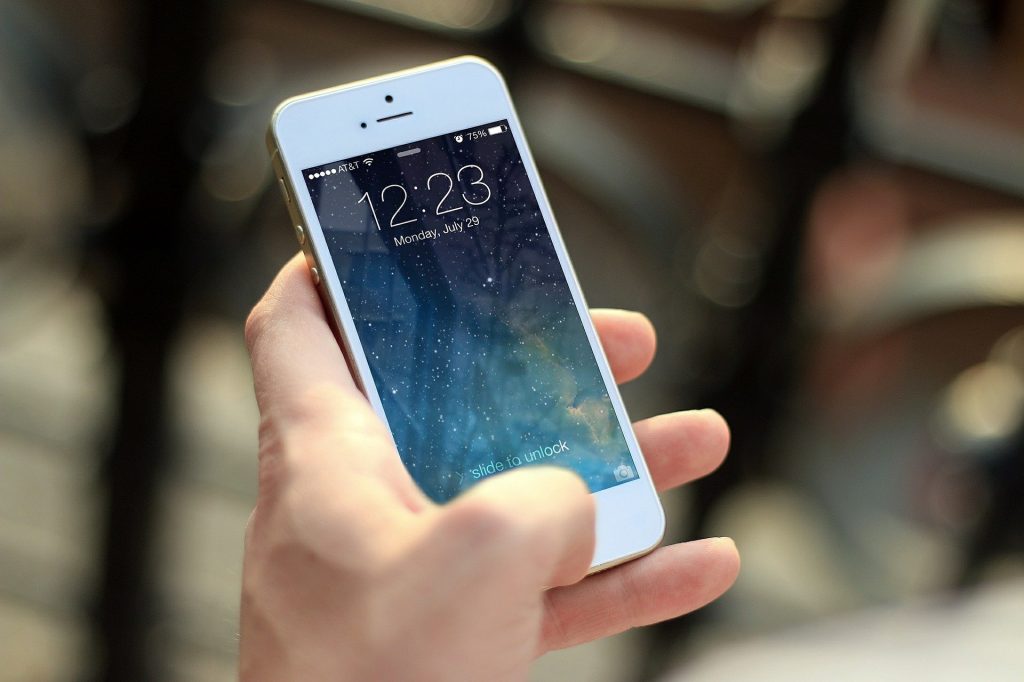10 Signs It’s Social Anxiety Disorder, Not Rudeness

Hey, Psych2Goers! A disclaimer : this article isn’t meant for diagnosis, treatment, or cure anyone. It is to create awareness among the general public, so if you or someone you know may be struggling, don’t hesitate to seek professional help from Psychiatrists or other trusted professionals.
“I’m a thistle-sifter. I have a sieve of sifted thistles and a sieve of unsifted thistles. Because I’m a thistle-sifter.”
Above is a tongue twister given by Lionel Logue, a movie character in King’s Speech, a 2010 British historical drama. In that movie, he is an Australian speech and language therapist who helps the future King George VI (otherwise known as Bertie) to cope with stammer.
Lionel : Come on, one more time, Bertie. You can do it.
Bertie : A sieve of thisted siphles.
While standing up and sitting down repeatedly, Bertie shouted at the top of his lungs, “Gah! Mah! Bah!”
According to the Diagnostic and Statistical Manual of Mental Disorders (DSM-5), which mental health professionals use as a guide, social anxiety disorder (SAD) is defined as the “marked and persistent fear of one or more social or performance situations in which the person is exposed to unfamiliar people or possible scrutiny by others.”
Everyone experiences some level of social anxiousness at one time or another, but those with SAD experience an above-average to severe level of worry, fear, and panic in social situations. This disorder affects 15 million adults, or 6.8% of the U.S. population, according to the Anxiety and Depression Association of America.
Have you ever noticed a friend who always cancels plans last minute? You wonder, why does she do that? Doesn’t that seem rude? Most probably it’s due to social anxiety disorder symptoms having kicked into their system, instead of rudeness. Let’s now look at 10 signs it is a social anxiety disorder, not rudeness.
- Struggling to make eye contact because it’s too triggering
You are standing in front of your lab partner to ask about the result of the experiment. However, you notice that he has trouble looking at you at the eyes. You notice this behaviour persists throughout the semester as he always avoids eye contact with you whenever you speak to him.
Often, people with SAD describe looking someone in the eyes as anxiety-provoking and uncomfortable. This is likely due, in part, to genetic wiring (Cuncic & Morin, 2020). According to a research done in University of Bern, Berlin, regarding gaze perception in social anxiety and social anxiety disorder, people diagnosed with SAD have a pronounced fear of direct eye contact. If you have SAD, the part of your brain that warns you of danger (your amygdala) can be triggered by eye contact.
It is important to make eye contact during conversation. This skill is vital both for your career and personal relationships. While some people may be predisposed to fearing or avoiding eye contact, most can learn to improve their eye contact skills and become better at making good eye contact.
According to Cuncic & Morin (2020), there are two phases to learning eye contact:
- Reduce anxiety about eye contact.
Start small with people who make you feel less anxious, such as a good friend, and work your way up to more anxiety-provoking situations such as holding eye contact with your work supervisor. You could even try starting with making eye contact with characters on television, in online videos, or over Facetime or other video chats if real-life eye contact feels too stressful at first. If you find your anxiety rising before or during situations in which you must make eye contact, try practicing deep breathing to slow your heart rate and calm yourself down.
- Improve skills for making eye contact.
If you are talking to someone one-on-one (or looking at people within a group), choose a spot directly between or slightly above the listener’s eyes. If this doesn’t feel comfortable, try letting your eyes go slightly out of focus, which has the added benefit of softening and relaxing your gaze
2. Not eating food because they are afraid it may get stuck in their teeth

You are having a company dinner with your subordinates. An intern in front of you is sitting very still, and does not touch the food at all. When you ask why he doesn’t eat, he just gives a furtive look towards you and smiles shyly. Little did you know, there are thousands of worried thoughts cloud his head at that time :
What if my hands shake?
What if I spill my food or drink?
What if I choke or draw attention to myself?
What if the food get stuck in my teeth?
As stated by Cuncic & Morin (2019), the fear of eating in front of others can interfere with your social life, work prospects, and adjustment to college. Socializing usually includes some form of food and drink. Business meetings sometimes take place over lunch or dinner. College cafeterias can be crowded. Fear of eating and drinking in front of others can be triggered by a wide variety of situations, foods, and dining companions.
Situation: Some people feel anxious in every situation in which they must eat or drink in front of others, while others fear specific settings such as formal banquets or dinner parties.
Company: Certain individuals become anxious only when eating in front of authority figures. On the other hand, some may be anxious even when eating in front of people whom they know well.
Atmosphere: Some may become more fearful if they are in a crowded restaurant as compared to dining in a quiet setting with only a few companions.
If your anxiety about eating in front of others is due to an eating disorder, or a combination of an eating disorder and SAD, then treatment will need to be tailored to your unique situation. In addition, if you experience generalized SAD, or your symptoms do not respond to therapy, medication such as selective serotonin reuptake inhibitors (SSRIs) may be advised (Cuncic & Morin, 2019).
3. Cancelling plans last minute because their symptoms have set in
You have made plans to go to happy hour with a group of coworkers after work. As the day and time approaches, your anxious thoughts increase. You feel worried you may come off in a way you don’t want to around your coworkers in a setting outside of work. As the work day comes to an end, these thoughts increase to a point that you’re not processing them and they become all consuming. This can lead to feelings of overwhelm. That would be the time that you would come up with an excuse to not go to happy hour and you will back out of the plans at the last minute. This will give you a sense of relief in the moment as now you don’t have to worry about it.
According to a licensed psychotherapist in Hoboken, New Jersey, Courtney Glashow, LCSW, this overwhelming anxious thoughts can be challenged, a part of cognitive behavioral therapy.
“What if my coworkers think I’m boring when they talk to me outside of work?”
Instead of letting this thought snowball into others, you will stop there and focus on this thought. Ask yourself how your family and friends see you. Do they think you’re boring? Why do you think you’ll actually be boring? This is something that’s happening in the future, so how do you know what’s going to happen? You don’t. You can reframe this worried thought so that you feel more curious about how it will be to interact with your coworkers outside of work. You never know until you try. And then the different behavior that comes after this would be that you would follow through and attend the work happy hour.
4. Shutting down in a group setting because they don’t want to say something “stupid”
You are tasked to complete a group assignment with another 4 groupmates. However, you are afraid that you would say something “stupid”, thus you remain silent throughout the discussion.
Although it can be tempting to avoid social and performance situations and shut down in a group setting, if you suffer from social anxiety disorder (SAD), it is important to get yourself out there and to remember to speak out. This also includes accepting invitations to go places and do things that make you uncomfortable (Cuncic & Gans, 2020).
5. Having an outburst over something others consider “small” but is very triggering for them
You are standing in a long line to enter the grocery store, since in this pandemic, only a certain amount of people can enter the store. Suddenly, a disembodied harsh voice comes from behind you. You turn around and see a guy, he shouts angry remarks, seemingly furious looking at the long line.
The symptom of angry outburst can also present in adults suffering from SAD. They may have difficulty falling asleep or staying asleep and, as a result, may be sleep deprived. Over time, lack of sleep can trigger individuals to become more sensitive to small problems and, as a result, are quick to anger. Yelling at the dog for barking, becoming angry in traffic, getting upset because of a long line at the grocery store, or lashing out over an honest mistake are all small triggers that turn into monumental challenges for an individual who is struggling with anxiety and is sleep-deprived. Anger does not have to be intentional, and with individuals who have an anxiety disorder, this anger is often an automatic reaction to an anxious trigger or the effects of long-standing anxiety (Kristen Fuller, MD).
According to Kristen Fuller, M.D., a family medicine physician and author, being mindful about anger outbursts by keeping a journal and taking time to reflect on why this anger occurred can often help individuals realize their anxiety triggers, and then seek therapy to find healthy ways to cope with them.
6. Being glued to the phone or social media
You are attending your cousin’s wedding, and you notice his brother is completely glued to the phone. He spends time aimlessly scrolling through his social media instead of socializing with the other family members.
Have you been in a situation described above? There is a high chance that he might be experiencing social anxiety and keeping himself focused on his phone becomes a way to escape himself from everyone around him.
7. Struggling to “open up” and have a deeper conversation because they fear judgement
“What is your lowest point in life, and how do you get over it?”
You ask the above deep question to a girl whom you are seeing for a couple of months, but she turns her head away, becomes reclusive and even more closed off. You wonder, why? What causes her to struggle to open up to you?
Underlying social anxiety disorder is the fear of being scrutinized, judged, or embarrassed by others. You may be afraid that people will think badly of you or that you won’t measure up in comparison to others. Therefore, you will struggle to “open up” and have a deeper conversation. Even though you probably realize that your fears of being judged are at least somewhat irrational and overblown, you still can’t help feeling anxious (Smith, Segal & Shubin; 2020).
The appropriate way to counter the irrational fears is by challenging your own thoughts and replacing them with more balanced views. Instead of becoming fearful that your partner would judge you for your deepest thoughts, try to think that he or she is actually suspending judgement and cultivating a safe space for you, allowing you to open up and say what you want to say (Smith, Segal & Shubin; 2020).
8. Leaving a party early because they get exhausted more easily
During your birthday party celebration, your friend approaches you and says she has to go back home early. You notice this is not the first time that she does that, even during the other friends’ parties, she also did the same thing.
People with social anxiety disorder might be intimidated with the idea of parties. They are easily drained by the interaction with other people. It is definitely alright to actually set a time limit before you go to a party and stick to your exit plan. Knowing how much time you will spend in advance should help to reduce anxiety. If you find that you are having fun and want to stay longer, great. If on the other hand, you don’t think that you can stay the entire time, know that it is OK to slip away early. Feel good for staying as long as you did. Of course, if you’re in the midst of severe anxiety and haven’t yet worked out a suitable treatment plan, attending parties may not be your best course of action. On the other hand, if you are looking for a way to challenge yourself and develop social skills, parties are a gold mine (Cuncic & Morin, 2020).
9. Appearing tense in a group setting
You are standing behind the curtain on stage, waiting to perform in front of a huge amount of audience. Suddenly, you feel your heart is beating faster, you are sweating profusely, your legs feel weak. You notice the mic that you are holding with your right hand is shaking very badly.
According to a psychologist, Justine Grosso, people with social anxiety disorder realize that the level of fear is excessive, which can cause individuals to fear being judged or rejected for appearing anxious, blushing, sweating, or coming across as incompetent or boring.” This may lead to avoidance of social situations or enduring them with intense distress.
How to encounter this problem?
According to a psychiatrist, Dr Jennifer Casarella (2020), you can actually apply deep breathing techniques. The appropriate steps :
- Sit down in a comfortable position, with your back straight.
- Relax your shoulder.
- Put one hand on your belly and the other on your chest.
- Breathe in slowly through your nose for 4 seconds. The hand that is on your belly will rise and the one on your chest should not move much.
- Hold your breath in for 2 seconds and then slowly let it out through your mouth for 6 seconds.
- Repeat this several times until you feel relaxed.
10. Creating a false time constraint to ensure they don’t feel trapped in a situation
Your coworker: Actually I have to pick up my mother at the clinic this evening. I am afraid I can’t join you guys for a group dinner tonight.
You: Okay, no problem
You notice the same coworker would always have something planned at the specific time whenever your boss suggests for a company dinner. She never attends any company dinner, as far as you know. If you have encountered such a coworker, there is a probability that she is struggling with social anxiety disorder.
A person with such a problem would avoid social situations, and one way is by creating a false time constraint to ensure they don’t feel trapped.
Social interactions will always be a part of your life, and rather than avoiding the activities that can also add joy to your life and reduce your anxieties, you’ll want to tackle your fears head-on. But you don’t have to do it alone. If you or your loved ones exhibit above signs, do plan a consultation with a Psychiatrist or other trusted professionals. It would definitely help to alleviate your problem.
REFERENCES
American Psychiatric Association. (2013). Diagnostic and statistical manual of mental disorders (5th ed.). https://doi.org/10.1176/appi.books.9780890425596
Casarella, J. (n.d.). Tips for living with social anxiety disorder. Retrieved April 22, 2021, from https://www.webmd.com/anxiety-panic/tips-for-living-with-social-anxiety
Cuncic, A., & Morin, A. (2020, September 23). How to deal with social anxiety at a party. Retrieved April 22, 2021, from https://www.verywellmind.com/how-to-deal-with-social-anxiety-at-a-party-3024417
Cuncic, A., & Gans, S. (2020, March 20). Things to start doing if you have social anxiety disorder. Retrieved April 22, 2021, from https://www.verywellmind.com/social-anxiety-disorder-tips-3024209
Cuncic, A., & Morin, A. (2019, September 11). What to do if you fear eating in public. Retrieved April 22, 2021, from https://www.verywellmind.com/why-am-i-afraid-to-eat-in-front-of-people-3024319
Cuncic, A., & Morin, A. (2020, November 19). How to overcome eye contact anxiety. Retrieved April 22, 2021, from https://www.verywellmind.com/how-do-i-maintain-good-eye-contact-3024392#citation-3
Fuller, K. (2020, June 11). When anxiety turns to anger: Relationship of anxiety and anger. Retrieved April 22, 2021, from https://discoverymood.com/blog/anxiety-and-anger/
Glashow, C. (2021, February 23). Why people with anxiety cancel plans last minute. Retrieved April 22, 2021, from https://www.anchortherapy.org/blog/anxiety-why-cancel-plans-hoboken-jerseycity-hudson-county-nj-therapist-counselor
Schulze, L., Renneberg, B., & Lobmaier, J. S. (2013). Gaze perception in social anxiety and social anxiety disorder. Frontiers in Human Neuroscience, 7. doi:10.3389/fnhum.2013.00872
Smith, M., Segal, J., & Shubin, J. (n.d.). Social anxiety disorder. Retrieved April 22, 2021, from https://www.helpguide.org/articles/anxiety/social-anxiety-disorder.htm
Wolff, C., & Beurkens, N. (2020, April 01). Social anxiety is no Joke: Here Are Expert-Backed coping strategies. Retrieved April 22, 2021, from https://www.mindbodygreen.com/articles/social-anxiety-disorder-causes-symptoms-and-how-to-treat-it












Responses